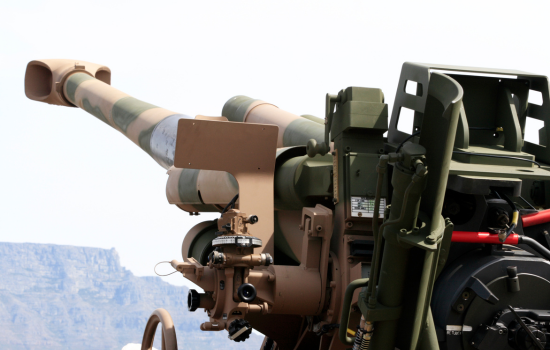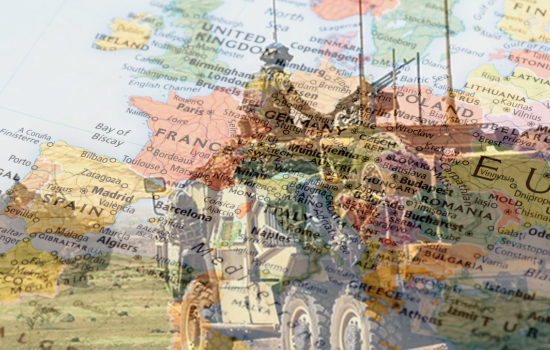Terror and Crime in Lebanon
Background
On the 9th November, 1997, the U.S. President notified the Chairman of the Senate’s Foreign Relations Committee, Mr. Jesse Helms, of the American government’s intention to remove Syria and Lebanon from the list of 30 countries who grow and distribute drugs worldwide.
The major reasons given by the US Government for removing Syria and Lebanon from the main list of growers and distributors of drugs were:
-
A substantial reduction in the areas where drugs are grown in Lebanon (in particular the poppy fields for the production of opium).
-
There is no evidence that drugs produced in Lebanon find their way to the U.S. in quantities which would significantly affect the U.S.
-
In recent years, Syria and Lebanon’s record in the fight against drugs has improved and their ties with the American agencies fighting the narcotics trade, have also improved.
Some Congressmen, among them Senator Charles Grassley received the President’s announcement with surprise. They claim that the government’s report conflicts with the latest report sent to Congress on this matter, whereby drugs were reaching the American market from Syria. They also feel that the law compels the government to include in the list not only drug growers, but also countries marketing the drugs, a field in which Syria and Lebanon still play a major role.
The Syrian and Lebanese media praised the American government for its decision. The Lebanese Foreign Minister claimed that over 99% of the process for growing and producing drugs has been stopped. Syria’s propaganda stated that Syria is one of the most drug-free countries in the world and that Syria had assisted Lebanon in a “giant campaign” to destroy the drug crops, larger than all the United Nations programs to eliminate drugs. The Syrian propaganda expressed the hope that in the light of the above, the U.S. would also re-evaluate the “wretched” list of countries supporting terrorism and would remove Syria from it.
The Syrian and Lebanese Policy
Lebanon is traditionally a country that produces and markets drugs in large quantities to the Middle East and the West. Syria, who totally controls Lebanon and the Bekaa Valley, where the drugs are produced and marketed, enables and probably even encourages the existence of the drug trade from which it derives a profit of millions of dollars a year.
At the beginning of the 1990s, in order to stop American pressure relating to drugs, the Syrian and Lebanese governments decided, in principle, to change the character of the drug trade in Lebanon. Within the framework of these changes, the growers in the Bekaa Valley were forced to slowly reduce their cultivation of poppy (from which opium is produced) and cannabis (from which hashish and marijuana are produced). At the same time they turned to the production and marketing of heroin and cocaine (drugs which are more profitable, more difficult to trace and cause much more damage to the users).
However, during the past two years, it has been reported that the Lebanese farmers have again started growing cannabis and poppies, on a smaller scale, due to the severe social implications which the cessation of the crops had on the growers in the Valley.
On the background of these changes, the Syrians and Lebanese carried out during the 1990s high profile campaigns to illustrate the destruction of the poppy and cannabis fields in the Valley. The Syrians and the Lebanese governments held “press shows” for Lebanese and foreign reporters, in order to demonstrate “their efforts” in destroying the poppy and cannabis fields and to create an image of being part of the “war machine against drugs”. This change was the main Syrian and Lebanese lever in their propaganda and political efforts in persuading the U.S. to remove them from the list of countries producing drugs.
The Current Situation
-
The Latin-American route (Colombia, Peru, Brazil, etc.), through which Lebanese emigrants in the region import the hydro-chloride cocaine, used in the manufacture of cocaine.
-
The second route is the Far East (“the Golden Triangle”) and Turkey, from where Lebanon imports basic morphine (used to produce heroin), via Pakistan, Afghanistan, Iran, Turkey and Syria.
The manufacture of heroin and cocaine is done in dozens of small, hard to detect, laboratories – which are spread out over the Bekaa Valley, particularly in the center and north of the valley. The drugs produced in Lebanon are marketed through a professional network of drug smugglers to the Middle East (including Israel), to the Arab countries and the West. Marketing of the drugs from Lebanon is carried out directly from the airports and seaports (Beirut, Tripoli and Sidon) or via Syria, which facilitates the transfer of the raw material brought into Lebanon and serves as an outlet for the marketing of the drugs.
The criminal networks involved in the producing and marketing of drugs and the forging of American dollars and European bank-notes are active in the regions under Hizballah’s control and it is estimated that the forging operation is carried out with Iran’s blessing.
The importation of raw material to Lebanon, as well as the production and marketing of narcotics in Lebanon, is a thriving industry involving criminals, terror organizations, Lebanese and Syrian security personnel, government officials and the Lebanese banking system, which launders the drug profits. These enormous profits are divided among senior Lebanese and Syrian officials (in the past the names of Mustafa Tlas, the Syrian Minister of Defense, and Rifat Assad, President Assad’s brother, were mentioned as being involved in the Lebanese drug trade). These profits also significantly contribute to the economies of Syria and Lebanon and to the Hizballah as an organization (which needs large sums of money for its political-social activities in the Shiite community).
It should be stressed that the centers where the drugs are produced and marketed are situated in the Bekaa Valley, where Hizballah has a strong-hold on the local population, and which is controlled by large numbers of Syrian military and intelligence personnel. The State Department’s report for 1996 states that the laboratories producing heroin in the Bekaa Valley are located in areas largely controlled by elements of Hizballah and would generally require a large and concentrated effort to root them out.
There is no doubt that the production and marketing of drugs, as well as the forging of Western bank-notes, can be carried out only with the approval of the Syrian intelligence and army officials who control the Valley and have excellent relations with Hizballah. The Syrians have not put an end to the criminal activity in the Valley because of the large profits they gain from the drug industry and because they regard Hizballah as an important tool in furthering their interests in Lebanon and within the framework of the Arab-Israeli conflict. Furthermore, they do not wish to enter in conflict with Iran, which supports Hizballah.
The recent confrontation between the Hizballah leadership and the elements under Sheikh Subhi al-Tufeili’s influence, during which the Lebanese army took control of the Brital town south of Baalbek – a well known center for the production of drugs and counterfeiting of money – has emphasized two basic facts:
-
Syria and Lebanon have the capabilities to uproot any terrorist or criminal nest in Lebanon, whenever their essential interests are involved;
-
For different political and economic reasons, Syria and Lebanon are not interested in a radical treatment of the problem.
The removal of the two countries from the State Department’s list of major drug-producing and drug transit countries will not enhance their motivation “to kill the goose that lays the golden eggs.”






